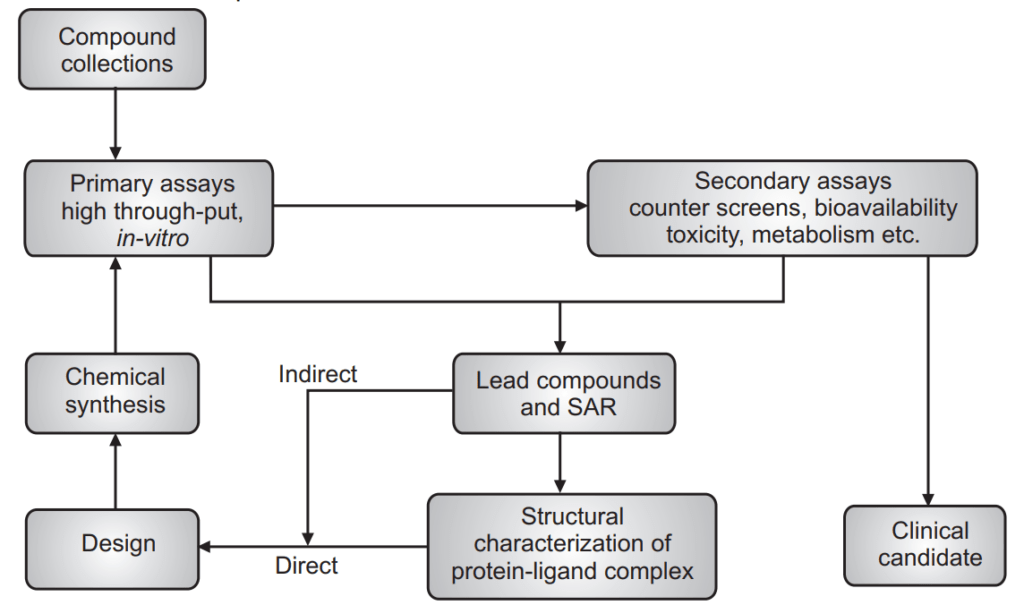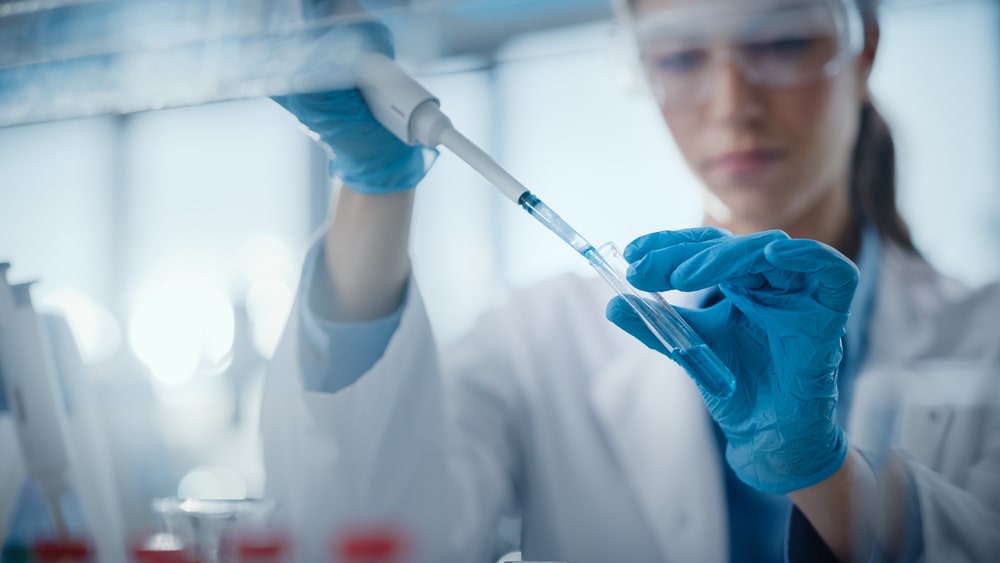The Discovery of a new drug involves an elaborate process. It starts with the synthesis of a large number of chemical compounds. Historically, drugs were discovered through identifying the active ingredient from the traditional remedy or by chance discovery. Later, chemical libraries of synthetic small molecules, natural products, or extracts were screened in intact cells or whole organisms to identify substances that have a desirable therapeutic effect in the process of classical pharmacology. After sequencing of the human genome which allows rapid cloning and synthesis of large quantities of synthetic proteins, high throughput screening of large compound libraries against isolated biological targets has become another effort for new drug discovery.
Modern drug discovery involves the identification of screening hits, medicinal chemistry, and optimization of those hits to increase the affinity, selectivity, efficacy of the potency, metabolic stability, and oral bioavailability (Fig. 1.1). Once a compound that fulfills all these requirements has been identified, the process of drug development begins with clinical trials. Before starting a clinical trial safety of the drug is evaluated in experimental animals. This process is called pre-clinical evaluation.

Make sure you also check our other amazing Article on: Therapeutic Index Pharmacology
